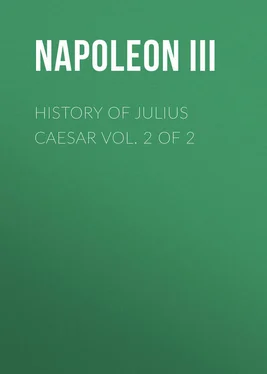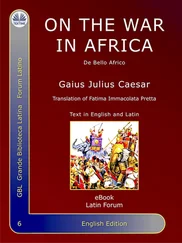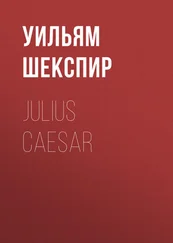Napoleon III - History of Julius Caesar Vol. 2 of 2
Здесь есть возможность читать онлайн «Napoleon III - History of Julius Caesar Vol. 2 of 2» — ознакомительный отрывок электронной книги совершенно бесплатно, а после прочтения отрывка купить полную версию. В некоторых случаях можно слушать аудио, скачать через торрент в формате fb2 и присутствует краткое содержание. Жанр: foreign_antique, foreign_prose, Биографии и Мемуары, на английском языке. Описание произведения, (предисловие) а так же отзывы посетителей доступны на портале библиотеки ЛибКат.
- Название:History of Julius Caesar Vol. 2 of 2
- Автор:
- Жанр:
- Год:неизвестен
- ISBN:нет данных
- Рейтинг книги:4 / 5. Голосов: 1
-
Избранное:Добавить в избранное
- Отзывы:
-
Ваша оценка:
- 80
- 1
- 2
- 3
- 4
- 5
History of Julius Caesar Vol. 2 of 2: краткое содержание, описание и аннотация
Предлагаем к чтению аннотацию, описание, краткое содержание или предисловие (зависит от того, что написал сам автор книги «History of Julius Caesar Vol. 2 of 2»). Если вы не нашли необходимую информацию о книге — напишите в комментариях, мы постараемся отыскать её.
History of Julius Caesar Vol. 2 of 2 — читать онлайн ознакомительный отрывок
Ниже представлен текст книги, разбитый по страницам. Система сохранения места последней прочитанной страницы, позволяет с удобством читать онлайн бесплатно книгу «History of Julius Caesar Vol. 2 of 2», без необходимости каждый раз заново искать на чём Вы остановились. Поставьте закладку, и сможете в любой момент перейти на страницу, на которой закончили чтение.
Интервал:
Закладка:
The Romans, by protecting the people of Marseilles, had extended their dominion on the coast; by contracting other alliances, they penetrated into the interior. The Ædui were at war with the Allobroges and the Arverni. The proconsul Cn. Domitius Ahenobarbus united with the former, and defeated the Allobroges, in 633, at Vindalium, on the Sorgue ( Sulgas ), not far from the Rhone. Subsequently, Q. Fabius Maximus, grandson of Paulus Æmilius, gained, at the confluence of the Isère and the Rhone, a decisive victory over the Allobroges, and over Bituitus, king of the Arverni. By this success Q. Fabius gained the surname of Allobrogicus . 11 11 Strabo, IV., pp. 154, 159. – Titus Livius, Epitome , LXI. – Florus, III. 2. – Velleius Paterculus, II. 10.
The Arverni pretended to be descendants of the Trojans, and boasted a common origin with the Romans; 12 12 Lucan, I. 424.
they remained independent, but their dominion, which extended from the banks of the Rhine to the neighbourhood of Narbonne and Marseilles, was limited to their ancient territory. The Ruteni, who had been their allies against Fabius, obtained similarly the condition of not being subjected to the Roman power, and were exempted from all tribute. 13 13 Cæsar, De Bello Gallico , I. 45. – Strabo, IV., p. 158.
In 636, the Consul Q. Marcius Rex founded the colony of Narbo Marcius, which gave its name to the Roman province called Narbonensis . 14 14 Titus Livius, Epitome , LXII. – Eutropius, IV. 10. – Velleius Paterculus, I. 15.
The movement which had long thrust the peoples of the north towards the south had slackened during several centuries, but in the seventh century of the foundation of Rome it seems to have re-commenced with greater intensity than ever. The Cimbri and the Teutones, 15 15 Strabo, VII., p. 243.
after ravaging Noricum and Illyria, and defeating the army of Papirius Carbo sent to protect Italy (641), had marched across Rhætia, and penetrated by the valley of the Rhine to the country of the Helvetii. They drew with them a part of that people, spread into Gaul, and for several years carried there terror and desolation. The Belgæ alone offered a vigorous resistance. Rome, to protect her province, sent against them, or against the tribes of the Helvetii, their allies, five generals, who were successively vanquished: the Consul M. Junius Silanus, in 645; M. Aurelius Scaurus, in 646; L. Cassius Longinus, in 647; 16 16 This victory was gained by the Tigurini, a people of Helvetia, on the territory of the Allobroges. According to the Epitome of Titus Livius (LXV.), the battle took place in the district of the Nitiobriges, a people inhabiting the banks of the Garonne, which is not very probable.
lastly, in the year 649, the proconsul Q. Servilius Cæpio 17 17 After pillaging the temple of Toulouse.
and Cn. Manlius Maximus. The two last each lost his army. 18 18 Titus Livius, Epitome , LXVII. – Tacitus, Germania , 37.
The very existence of Rome was threatened.
Marius, by the victories gained at Aix over the Teutones (652), and at the Campi Raudii, not far from the Adige, over the Cimbri (653), destroyed the barbarians and saved Italy.
The ancients often confounded the Gauls with the Cimbri and Teutones; sprung from a common origin, these peoples formed, as it were, the rear-guard of the great army of invasion which, at an unknown epoch, had brought the Celts into Gaul from the shores of the Black Sea. Sallust 19 19 Jugurtha , 114.
ascribes to the Gauls the defeats of Q. Cæpio and Cn. Manlius, and Cicero 20 20 Orat. de Provinciis Consularibus , 13.
designates under the same name the barbarians who were destroyed by Marius. The fact is that all the peoples of the north were always ready to unite in the same effort when it was proposed to throw themselves upon the south of Europe.
From 653 to 684, the Romans, occupied with intestine wars, dreamt not of increasing their power beyond the Alps; and, when internal peace was restored, their generals, such as Sylla, Metellus Creticus, Lucullus, and Pompey, preferred the easy and lucrative conquests of the East. The vanquished peoples were abandoned by the Senate to the exactions of governors, which explains the readiness with which the deputies of the Allobroges entered, in 691, into Catiline’s conspiracy; fear led them to denounce the plot, but they experienced no gratitude for their revelations. 21 21 Orat. de Provinciis Consularibus , 13.
The Allobroges rose, seized the town of Vienne, 22 22 The fugitives from Vienne founded the town which subsequently took the name of Lugdunum , in a place called Condate , which is synonymous with confluence. (Dio Cassius, XLVI. 50.)
which was devoted to the Romans, and surprised, in 693, Manlius Lentinus, lieutenant of C. Pomptinus, governor of the Narbonnese. Nevertheless, some time after, the latter finally defeated and subdued them. “Until the time of Cæsar,” says Cicero, “our generals were satisfied with repelling the Gauls, thinking more of putting a stop to their aggressions than of carrying the war among them. Marius himself did not penetrate to their towns and homes, but confined himself to opposing a barrier to these torrents of peoples which were inundating Italy. C. Pomptinus, who suppressed the war raised by the Allobroges, rested after his victory. Cæsar alone resolved to subject Gaul to our dominion.” 23 23 Orat. de Provinciis Consularibus , 13.
Continual Pre-occupation of the Romans in regard to the Gauls.
III. It results from this summary of facts that the constant thought of the Romans was, during several centuries, to resist the Celtic peoples established on either side of the Alps. Ancient authors proclaim aloud the fear which held Rome constantly on the watch. “The Romans,” says Sallust, “had then, as in our days, the opinion that all other peoples must yield to their courage; but that with the Gauls it was no longer for glory, but for safety, that they had to fight.” 24 24 Jugurtha , 114.
On his part, Cicero expresses himself thus: “From the beginning of our Republic, all our wise men have looked upon Gaul as the most redoubtable enemy of Rome . But the strength and multitude of those peoples had prevented us until now from combating them all.” 25 25 Cicero, Orat. de Provinciis Consularibus , 13.
In 694, it will be remembered, rumours of an invasion of the Helvetii prevailed at Rome. All political pre-occupation ceased at once, and resort was had to the exceptional measures adopted under such circumstances. 26 26 Cicero, Epist. ad Atticum , I. 19.
In fact, as a principle, whenever a war against the Gauls was imminent, a dictator was immediately nominated, and a levy en masse ordered. From that time no one was exempted from military service; and, as a provision against an attack of those barbarians, a special treasure had been deposited in the Capitol, which it was forbidden to touch except in that eventuality. 27 27 Plutarch, Cæsar , 41. – Appian, Civil Wars , II. 41.
Accordingly, when, in 705, Cæsar seized upon it, he replied to the protests of the tribunes that, since Gaul was subjugated, this treasure had become useless. 28 28 Appian, Civil Wars , II. 41.
War against the peoples beyond the Alps was thus, for Rome, the consequence of a long antagonism, which must necessarily end in a desperate struggle, and the ruin of one of the two adversaries. This explains, at the same time, both Cæsar’s ardour and the enthusiasm excited by his successes. Wars undertaken in accord with the traditional sentiment of a country have alone the privilege of moving deeply the fibre of the people, and the importance of a victory is measured by the greatness of the disaster which would have followed a defeat. Since the fall of Carthage, the conquests in Spain, in Africa, in Syria, in Asia, and in Greece, enlarged the Republic, but did not consolidate it, and a check in those different parts of the world would have diminished the power of Rome without compromising it. With the peoples of the North, on the contrary, her existence was at stake, and upon her reverses equally as upon her successes depended the triumph of barbarism or civilisation. If Cæsar had been vanquished by the Helvetii or the Germans, who can say what would have become of Rome, assailed by the numberless hordes of the North rushing eagerly upon Italy?
Читать дальшеИнтервал:
Закладка:
Похожие книги на «History of Julius Caesar Vol. 2 of 2»
Представляем Вашему вниманию похожие книги на «History of Julius Caesar Vol. 2 of 2» списком для выбора. Мы отобрали схожую по названию и смыслу литературу в надежде предоставить читателям больше вариантов отыскать новые, интересные, ещё непрочитанные произведения.
Обсуждение, отзывы о книге «History of Julius Caesar Vol. 2 of 2» и просто собственные мнения читателей. Оставьте ваши комментарии, напишите, что Вы думаете о произведении, его смысле или главных героях. Укажите что конкретно понравилось, а что нет, и почему Вы так считаете.












